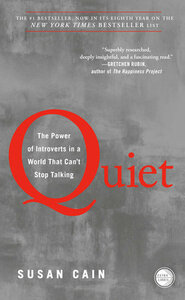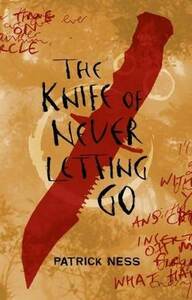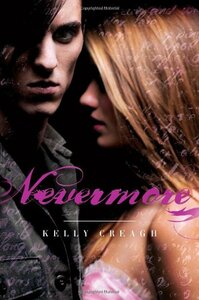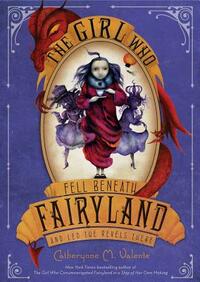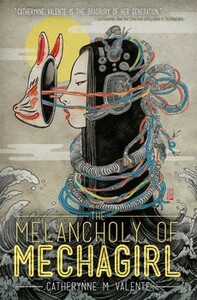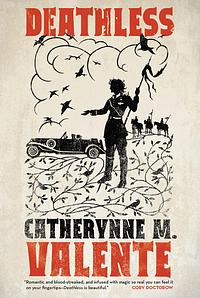Take a photo of a barcode or cover
__ceecee__'s Reviews (414)
**POSSIBLE SPOILERS**
I didn't enjoy it as much as the first two novellas. For me it served as a way to emphasize even more the significance of the Blackfyre Rebellion to the ASoIaF series. This was all about the Blackfyre Rebellion all over again. Will GRRM ever stop talking about this? Of course not, because it somehow plays a big part in Dany's quest to seize the Iron Throne. Why would GRRM devote more time to the Blackfyre and Bittersteel and secret plots to "put the real descendant on the Iron Throne"?
Maybe it's just a good story to write: Plots and conspiracies to seize power. Court intrigue. These things never end, certainly they don't in Westeros.
In The Mystery Knight, Dunk and Egg accidentally find themselves embroiled in a second Blackfyre Rebellion. Dunk proves he's a lunk here, because once you see someone with purple eyes, how can you not grow suspicious that he has Targaryen blood? Once you read that the hedge knight John the Fiddler has purple eyes and that he's treated higher than a hedge knight deserves, of course he's a friggin high lord! I still love you, though, Dunk.
What I really liked about this novella though, is it didn't follow the usual story of the handsome dashing man as the hero of the story. John the Fiddler or Daemon II might have become the hero, but one could argue he was doomed from the start. I still liked him, though. He wasn't a douche, and when he found out that his followers were bribing the other knights to lose in the tourney so he could win, he remedied that.
Which brings me to Glendon. Initially we find him as an angry young man, pimply, a little stout, and with nothing to boast of but his skills at riding. Not sure how I should feel knowing he payed his knighthood with his sister's maidenhead, but Dunk and Egg liked him all the same, maybe because he was honorable enough not to take a bribe. So I like him.
*3.5 stars I'm not much into subterfuges and plots mainly found here. It wasn't as riveting as the first two books, and it's like the book ended abruptly. But I still liked the development of Egg's character here, and still a worthy read.
I didn't enjoy it as much as the first two novellas. For me it served as a way to emphasize even more the significance of the Blackfyre Rebellion to the ASoIaF series. This was all about the Blackfyre Rebellion all over again. Will GRRM ever stop talking about this? Of course not, because it somehow plays a big part in Dany's quest to seize the Iron Throne. Why would GRRM devote more time to the Blackfyre and Bittersteel and secret plots to "put the real descendant on the Iron Throne"?
Maybe it's just a good story to write: Plots and conspiracies to seize power. Court intrigue. These things never end, certainly they don't in Westeros.
In The Mystery Knight, Dunk and Egg accidentally find themselves embroiled in a second Blackfyre Rebellion. Dunk proves he's a lunk here, because once you see someone with purple eyes, how can you not grow suspicious that he has Targaryen blood? Once you read that the hedge knight John the Fiddler has purple eyes and that he's treated higher than a hedge knight deserves, of course he's a friggin high lord! I still love you, though, Dunk.
What I really liked about this novella though, is it didn't follow the usual story of the handsome dashing man as the hero of the story. John the Fiddler or Daemon II might have become the hero, but one could argue he was doomed from the start. I still liked him, though. He wasn't a douche, and when he found out that his followers were bribing the other knights to lose in the tourney so he could win, he remedied that.
Which brings me to Glendon. Initially we find him as an angry young man, pimply, a little stout, and with nothing to boast of but his skills at riding. Not sure how I should feel knowing he payed his knighthood with his sister's maidenhead, but Dunk and Egg liked him all the same, maybe because he was honorable enough not to take a bribe. So I like him.
*3.5 stars I'm not much into subterfuges and plots mainly found here. It wasn't as riveting as the first two books, and it's like the book ended abruptly. But I still liked the development of Egg's character here, and still a worthy read.
I'm glad this book was written, finally.
"Quiet gives not only a voice, but a path to homecoming for so many who've walked through the better part of their lives thinking the way they engage with the world is something in need of fixing. ~Jonathan Fields
A 15-year old and a 21-year old? How will that ever work out?
But somehow, Laura Buzo managed to pull off telling a story about a 15 year old girl who falls for her 21 year old coworker, in this novel about first love, growing up, and moving on.
Sometimes I think, I really must be a 15-year old trapped in a 23 year old body. I was able to relate with Amelia maybe because I'm in a certain point in my life like her, and I loved her narrations. You're in love with a guy but you don't know what to do about it? Hey, me, too!
Though the parts with Chris's narration were a bit confusing (I really would have preferred if it was all Amelia's POV), it actually made sense in the end. Final verdict: Chris's narration, not a strong point for me (except for the times he mentions Amelia). Sometimes Chris and Amelia had too similar word choices.
This book just kept getting better and better, though. Buzo interjects these thoughts on feminism and patriarchy, and even on literature through Chris and Amelia, and, it didn't feel contrived at all. (I am thinking about one novel - [b:Graceling|3236307|Graceling (Graceling Realm, #1)|Kristin Cashore|http://d.gr-assets.com/books/1331548394s/3236307.jpg|3270810], I'm looking at you! - where the feminist agenda was so blatant and distracting, it set my teeth on edge). I felt like I got out of this novel with a satisfied, giddy heart, and also a little bit wiser.
*4.5 stars It's rare to find a book that leaves you with this peace of mind, a book that leaves you satisfied, especially when it's a book that's already been raved about, and thus gave you high expectations.
Love and Other Perishable Items aka [b:Good Oil|8079815|Good Oil|Laura Buzo|http://d.gr-assets.com/books/1298925793s/8079815.jpg|12803237] is a light read (this is the first time this year I've finished a book in a day!), but packs a punch. I'd love to read this again and again.
But somehow, Laura Buzo managed to pull off telling a story about a 15 year old girl who falls for her 21 year old coworker, in this novel about first love, growing up, and moving on.
Sometimes I think, I really must be a 15-year old trapped in a 23 year old body. I was able to relate with Amelia maybe because I'm in a certain point in my life like her, and I loved her narrations. You're in love with a guy but you don't know what to do about it? Hey, me, too!
Though the parts with Chris's narration were a bit confusing (I really would have preferred if it was all Amelia's POV), it actually made sense in the end. Final verdict: Chris's narration, not a strong point for me (except for the times he mentions Amelia). Sometimes Chris and Amelia had too similar word choices.
This book just kept getting better and better, though. Buzo interjects these thoughts on feminism and patriarchy, and even on literature through Chris and Amelia, and, it didn't feel contrived at all. (I am thinking about one novel - [b:Graceling|3236307|Graceling (Graceling Realm, #1)|Kristin Cashore|http://d.gr-assets.com/books/1331548394s/3236307.jpg|3270810], I'm looking at you! - where the feminist agenda was so blatant and distracting, it set my teeth on edge). I felt like I got out of this novel with a satisfied, giddy heart, and also a little bit wiser.
*4.5 stars It's rare to find a book that leaves you with this peace of mind, a book that leaves you satisfied, especially when it's a book that's already been raved about, and thus gave you high expectations.
Love and Other Perishable Items aka [b:Good Oil|8079815|Good Oil|Laura Buzo|http://d.gr-assets.com/books/1298925793s/8079815.jpg|12803237] is a light read (this is the first time this year I've finished a book in a day!), but packs a punch. I'd love to read this again and again.
What started out as a promising novel ended up being a tedious and poorly executed story. I really wanted to like this book, because the concept of being able to hear everyone's thoughts and they yours, is such a great premise. Also, reading a male POV is always interesting.
I really liked Patrick Ness's writing style, the word choices and composition and such, which reminded me a little of Markus Zusak's contemporary young adult books. The first few chapters were amazing, when Ness was explaining about Noise.
Those are just a few of the really great lines here. Men's thoughts are chaotic, unorganized, and I could see very well how Noise affects Todd's and everybody else's lives. With all that Noise, how do you not lie to yourself?
You can see why this book was so promising in the beginning.
So here we go, Todd Hewitt is 12 years old and 12 months old, and he will be 13 in the 13th month. When a boy turns 13, he undergoes this mysterious ritual and become a man. That's how it is in Prentisstown, a town in an alien planet, where earthlings fled to escape the chaos of Earth and start anew. Also, in Prentisstown, there are no women.
Like I said, very promising.
****BUT (and spoilers and profanity ahead)****
There's always a but. I didn't like the running around and getting away from the evil people chasing them bits, which comprised like two-thirds of the book. First we find out that what Todd knows is bull and he should run away now. From the very first, Todd is told that he should forget everything he knew about Prentisstown and the history behind it, but does he do it? No. From the start, Todd knew what the boys did to become a "man" but we readers are still left in the dark. However, this doesn't seem to affect Todd in any way. He outright denies this truth, which I thought stupid. It could also be attributed to the fact that he's running for his life. But whatever, I didn't like it.
Also, from the start, Todd is given his mother's diary, which does contain the Truth but isn't given much importance throughout the story except maybe towards the ending, and I think this is where I felt disconnected from the characters. The running away was given more importance than the diary, which potentially can reveal a lot of things, which could help them fight back the evil men of Prentisstown. I understand Todd doesn't know how to read, and his pride makes him reluctant to even try to decipher what he needs to read. But he's met this girl who can read it, but, no. The evil men of Prentisstown are on their backs, and "there's no time to read the diary." Like bull. The withholding of the truth became aggravating, instead of heightening the suspense for me.
The men of Prentisstown comprise like maybe a hundred men, maybe half of that are 15-year old boys, and they organize this army to...what? It's still unclear to me how they could take over the entire planet when they're so few. And how the hell did they cross the wide river or swamp of whatever so quicklywhen the only bridge from Prentisstown to the other towns was burned down Like W.T.A.F. I immediately could not believe that the rumors of a thousand-man army was approaching, because it seemed improbable. (Which later we found out as an outright lie and just a rumor to spread fear). There just was no logic behind their motives and they're just two-dimensionally evil, that I didn't care about the conflict in this book at all.
But Todd and Viola just kept on running. There wasn't even an interesting bit of Todd showing off his hunting skills and wilderness survival skills because they almost always bump into other people and villages who help them, but they eventually need to leave "ASAP" because they're being chased.
Run, run, run, that's all they did. I grew impatient with it.
And what was up with the preacher Aaron. I swear he only survived because the author wrote him that way. Like W.T.A.F. who survives a crocodile attack, huh? He's mad, I get it, but how the hell did he keep up with Todd and Viola. And why was it so necessary for Todd to be able to kill another man? Was this supposed to accentuate that murder is evil? What was really the point of this book? That Todd stay true tom himself, stay pure, by refraining from killing another being? That's why it's titled "The Knife of Letting Go", wasn't it? Because it really kind of focused on the knife. If Todd murders someone, he falls.
But that's just it, Todd has killed someone. An innocent Spackle, a native of the planet they landed on, and Todd kills this alien because he was raised to believe that Spackle were the cause of the war, way way back. Remember when Todd was told to disregard everything he's been taught about Prentisstown? Does this not fit exactly that warning? But Todd kills the alien anyway, for the simple motivation of...killing...and proving himself...and God, he deliberately disobeyed the advice given to him, and this scene just was senseless.
I cannot even begin to comprehend that WTAF-ness of Aaron's explanation. It was mad, but just stupid mad, not even evil genius mad. Mayor Prentiss is stupid evil, this whole hating women because men can't their thoughts but women can read men's thoughts was stupid. Killing off the women was ludicrous, killing off the dog was enraging.
There were times when I could care about Todd, but most of the time I just wanted to slap him. And because I could not care about the story when all they did was run and hide in villages and run again, I could not care how Viola and Todd created a special bond between them.
Also, I think the explanation for the whole Noise thing was disappointing. So when they arrived in the planet, it just happened. Men were able to read each other's thoughts, but they couldn't read women's thoughts. But women can read the men's thoughts. That seemed so illogical to me. How women able to hide their thoughts? Is it a genetic mutation thing? The Noise only affects the XY chromosome? And this is shelved as Sci-Fi? There was nothing logical in the world-building!
In the end I just could not care for the story.
*2 stars* Because the writing was good, but the story was not.
I really liked Patrick Ness's writing style, the word choices and composition and such, which reminded me a little of Markus Zusak's contemporary young adult books. The first few chapters were amazing, when Ness was explaining about Noise.
“Men lie, and they lie to theirselves worst of all.”
“My name is Todd Hewitt...It’s a trick Ben taught me to help settle my Noise. You close yer eyes and as clearly and calmly as you can you tell yerself who you are, cuz that’s what gets lost in all that Noise.”
“The Noise is a man unfiltered, and without a filter, a man is just chaos walking.”
Those are just a few of the really great lines here. Men's thoughts are chaotic, unorganized, and I could see very well how Noise affects Todd's and everybody else's lives. With all that Noise, how do you not lie to yourself?
You can see why this book was so promising in the beginning.
So here we go, Todd Hewitt is 12 years old and 12 months old, and he will be 13 in the 13th month. When a boy turns 13, he undergoes this mysterious ritual and become a man. That's how it is in Prentisstown, a town in an alien planet, where earthlings fled to escape the chaos of Earth and start anew. Also, in Prentisstown, there are no women.
Like I said, very promising.
****BUT (and spoilers and profanity ahead)****
There's always a but. I didn't like the running around and getting away from the evil people chasing them bits, which comprised like two-thirds of the book. First we find out that what Todd knows is bull and he should run away now. From the very first, Todd is told that he should forget everything he knew about Prentisstown and the history behind it, but does he do it? No. From the start, Todd knew what the boys did to become a "man" but we readers are still left in the dark. However, this doesn't seem to affect Todd in any way. He outright denies this truth, which I thought stupid. It could also be attributed to the fact that he's running for his life. But whatever, I didn't like it.
Also, from the start, Todd is given his mother's diary, which does contain the Truth but isn't given much importance throughout the story except maybe towards the ending, and I think this is where I felt disconnected from the characters. The running away was given more importance than the diary, which potentially can reveal a lot of things, which could help them fight back the evil men of Prentisstown. I understand Todd doesn't know how to read, and his pride makes him reluctant to even try to decipher what he needs to read. But he's met this girl who can read it, but, no. The evil men of Prentisstown are on their backs, and "there's no time to read the diary." Like bull. The withholding of the truth became aggravating, instead of heightening the suspense for me.
The men of Prentisstown comprise like maybe a hundred men, maybe half of that are 15-year old boys, and they organize this army to...what? It's still unclear to me how they could take over the entire planet when they're so few. And how the hell did they cross the wide river or swamp of whatever so quicklywhen the only bridge from Prentisstown to the other towns was burned down Like W.T.A.F. I immediately could not believe that the rumors of a thousand-man army was approaching, because it seemed improbable. (Which later we found out as an outright lie and just a rumor to spread fear). There just was no logic behind their motives and they're just two-dimensionally evil, that I didn't care about the conflict in this book at all.
But Todd and Viola just kept on running. There wasn't even an interesting bit of Todd showing off his hunting skills and wilderness survival skills because they almost always bump into other people and villages who help them, but they eventually need to leave "ASAP" because they're being chased.
Run, run, run, that's all they did. I grew impatient with it.
And what was up with the preacher Aaron. I swear he only survived because the author wrote him that way. Like W.T.A.F. who survives a crocodile attack, huh? He's mad, I get it, but how the hell did he keep up with Todd and Viola. And why was it so necessary for Todd to be able to kill another man? Was this supposed to accentuate that murder is evil? What was really the point of this book? That Todd stay true tom himself, stay pure, by refraining from killing another being? That's why it's titled "The Knife of Letting Go", wasn't it? Because it really kind of focused on the knife. If Todd murders someone, he falls.
But that's just it, Todd has killed someone. An innocent Spackle, a native of the planet they landed on, and Todd kills this alien because he was raised to believe that Spackle were the cause of the war, way way back. Remember when Todd was told to disregard everything he's been taught about Prentisstown? Does this not fit exactly that warning? But Todd kills the alien anyway, for the simple motivation of...killing...and proving himself...and God, he deliberately disobeyed the advice given to him, and this scene just was senseless.
I cannot even begin to comprehend that WTAF-ness of Aaron's explanation. It was mad, but just stupid mad, not even evil genius mad. Mayor Prentiss is stupid evil, this whole hating women because men can't their thoughts but women can read men's thoughts was stupid. Killing off the women was ludicrous, killing off the dog was enraging.
There were times when I could care about Todd, but most of the time I just wanted to slap him. And because I could not care about the story when all they did was run and hide in villages and run again, I could not care how Viola and Todd created a special bond between them.
Also, I think the explanation for the whole Noise thing was disappointing. So when they arrived in the planet, it just happened. Men were able to read each other's thoughts, but they couldn't read women's thoughts. But women can read the men's thoughts. That seemed so illogical to me. How women able to hide their thoughts? Is it a genetic mutation thing? The Noise only affects the XY chromosome? And this is shelved as Sci-Fi? There was nothing logical in the world-building!
In the end I just could not care for the story.
*2 stars* Because the writing was good, but the story was not.
As much as I love Markus Zusak, I didn't enjoy this book as much as I wanted to.
Of course, after reading The Book Thief, nothing compares. And I understand that this being his debut novel I can hardly expect something as grand and heart-wrenching as The Book Thief.
Underdog is just about a boy and his ordinary life, and also his aspirations. It's almost autobiographical in writing style. There's no Big Baddie, nor a big climax. Just a book about the head of a 15-year old boy.
Cameron Wolfe is a sweetie, sometimes I couldn't believe he was real. (Yeah, he's fictional, but you get it). The thing is, there just wasn't more to the story. By the end, very little has progressed. The parts in every end of chapter where Cameron narrates his dreams didn't make sense to me, and didn't seem to lend much to the plot.
*2.5 stars In the end, it was "just okay". Although we do get to read Zusak's style of writing and kind of learn how he grew as a writer, which was a treat.
Of course, after reading The Book Thief, nothing compares. And I understand that this being his debut novel I can hardly expect something as grand and heart-wrenching as The Book Thief.
Underdog is just about a boy and his ordinary life, and also his aspirations. It's almost autobiographical in writing style. There's no Big Baddie, nor a big climax. Just a book about the head of a 15-year old boy.
Cameron Wolfe is a sweetie, sometimes I couldn't believe he was real. (Yeah, he's fictional, but you get it). The thing is, there just wasn't more to the story. By the end, very little has progressed. The parts in every end of chapter where Cameron narrates his dreams didn't make sense to me, and didn't seem to lend much to the plot.
*2.5 stars In the end, it was "just okay". Although we do get to read Zusak's style of writing and kind of learn how he grew as a writer, which was a treat.
I have to admit I wouldn't have looked twice at this book if it weren't for the glowing reviews it received from friends. Look at that cover! I know, I know, don't judge a book by its cover.
On the other hand, when I found out Edgar Allan Poe's works inspired this novel, I was immediately intrigued. Besides, this also featured a pairing between an emo/goth and a cheerleader, which I thought pretty novel accompanied by the glowing reviews, I decided to give it a try.
Although it was a good book with good characterization, I had expected to be pleasantly surprised with the way the author would incorporate Poe's works in the story. It was not what I expected. I thought it was nicely done though, but didn't completely arouse excitement in me.
Isobel and Varen are paired up for a project (how convenient!) to write about an author of their choice, and they initially don't get along. She's a cheerleader, he's a goth, high school stratification will play its part. Isobel isn't that bitchy I-am-mighty type of cheerleader that a lot of books and movies seem to portray. She's a girl who's really good doing flips, and she can be badass too. They both eventually learn to drop their prejudices and like each other. I actually liked them together, although it was unclear to me how they could fall in love within the time given to them.
Now with regards to the Poe aspect, I liked the visuals it gave me. However, nothing is properly explained. Isobel is unwillingly plunged in Varen's world, but we don't know why. How can Varen just give that precious book to Isobel's care? How did Varen change his mind about Isobel and din't he care at all that she would be involved and get in trouble? I guess I just wanted Varen's POV in all this, because with only Isobel, I was just thrust into one situation to another with Isobel barely getting out of the scrapes.
There were too many conflicts (Isobel's parents, the project, Reynolds, Isobel's boyfriend, etc) I guess I just wanted to be immersed in Poe's world without having too much to do with Isobel and Varen's high school life. And when I was in Varen and Poe's dreamworld, I felt it wasn't enough.
The characterization here is a strong point. I felt Isobel was an admirable heroine, and her friends and family were nicely drawn out too. 3.5 stars
On the other hand, when I found out Edgar Allan Poe's works inspired this novel, I was immediately intrigued. Besides, this also featured a pairing between an emo/goth and a cheerleader, which I thought pretty novel accompanied by the glowing reviews, I decided to give it a try.
Although it was a good book with good characterization, I had expected to be pleasantly surprised with the way the author would incorporate Poe's works in the story. It was not what I expected. I thought it was nicely done though, but didn't completely arouse excitement in me.
Isobel and Varen are paired up for a project (how convenient!) to write about an author of their choice, and they initially don't get along. She's a cheerleader, he's a goth, high school stratification will play its part. Isobel isn't that bitchy I-am-mighty type of cheerleader that a lot of books and movies seem to portray. She's a girl who's really good doing flips, and she can be badass too. They both eventually learn to drop their prejudices and like each other. I actually liked them together, although it was unclear to me how they could fall in love within the time given to them.
Now with regards to the Poe aspect, I liked the visuals it gave me. However, nothing is properly explained. Isobel is unwillingly plunged in Varen's world, but we don't know why. How can Varen just give that precious book to Isobel's care? How did Varen change his mind about Isobel and din't he care at all that she would be involved and get in trouble? I guess I just wanted Varen's POV in all this, because with only Isobel, I was just thrust into one situation to another with Isobel barely getting out of the scrapes.
There were too many conflicts (Isobel's parents, the project, Reynolds, Isobel's boyfriend, etc) I guess I just wanted to be immersed in Poe's world without having too much to do with Isobel and Varen's high school life. And when I was in Varen and Poe's dreamworld, I felt it wasn't enough.
The characterization here is a strong point. I felt Isobel was an admirable heroine, and her friends and family were nicely drawn out too. 3.5 stars
I thought I was in a reading slump and couldn't enjoy reading a book anymore. Turns out, I only needed to read these kind of books. *Status: In love with an author*
After reading her Fairyland series, I promptly fell in love with her writing. So I decided to have a Catherynne M. Valente reading marathon. I don't know why I would ever choose to read this anthology first rather than her other novels, but, whatever. Maybe it was because of the Mechagirl. I love Japanese culture.
Some of her short stories were semi-autobiographical. She lived as a Navy wife in 2003, and her years in Japan really did something to her. You'll find out when you read this anthology, and her afterword.
I skipped the poetry parts, except the titular one, because I'm not much for poetry. Basically, I could only ever read haiku. And of course I still need to decipher The Melancholy of Mechagirl.
The rest of the book was word candy. My favorites were "Killswitch", a really short story about a mysterious game, and I could really relate to the outrage of the players of this game; "Fade to White", a dystopian story, maybe alternate universe wherein Japan and Russia won the wars in the 40s so on; and "13 Ways of Looking at Space/Time", where Valente cleverly retold famous creation stories with a twist of scientific terminologies.
*3.5 stars Maybe not for everyone who are not familiar with Valente's works yet. (Again, why did I read this first???) But her fans won't be disappointed.
Some of her short stories were semi-autobiographical. She lived as a Navy wife in 2003, and her years in Japan really did something to her. You'll find out when you read this anthology, and her afterword.
I skipped the poetry parts, except the titular one, because I'm not much for poetry. Basically, I could only ever read haiku. And of course I still need to decipher The Melancholy of Mechagirl.
The rest of the book was word candy. My favorites were "Killswitch", a really short story about a mysterious game, and I could really relate to the outrage of the players of this game; "Fade to White", a dystopian story, maybe alternate universe wherein Japan and Russia won the wars in the 40s so on; and "13 Ways of Looking at Space/Time", where Valente cleverly retold famous creation stories with a twist of scientific terminologies.
*3.5 stars Maybe not for everyone who are not familiar with Valente's works yet. (Again, why did I read this first???) But her fans won't be disappointed.
Sometimes love stories are pure, and gentle and innocent. This is not that story. ~Little Red Reviewer
Also, this is about a War. I still need to collect my thoughts on this, so I'll leave that little piece of review for now, which I believe is very accurate for this novel.

